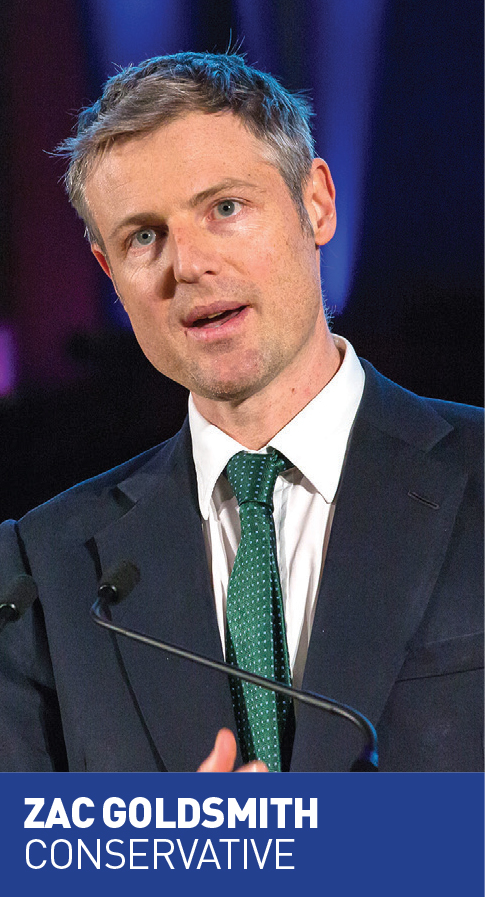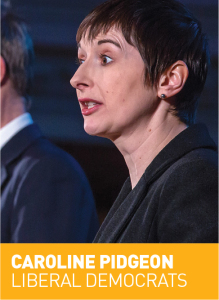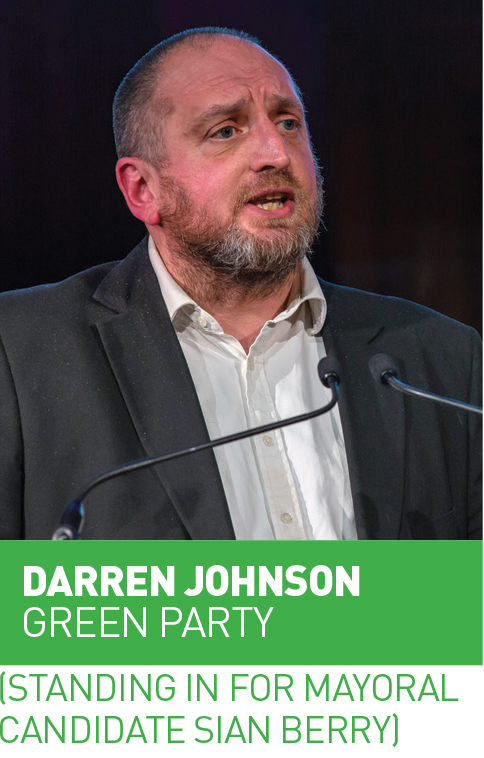London’s mayoral candidates put meat on the bones of their housing policies this week, at a LandAid debate attended by industry professionals.
Foreign investment, Brexit and tall buildings were also on the agenda at the debate, sponsored by Savills and chaired by former BBC journalist Sir Martyn Lewis.
Estates Gazette grilled the candidates on their housing policies and asked if they would attend MIPIM if elected?
While Sadiq Khan and Zac Goldsmith clashed on issues such as the definition of an affordable home, at other times there appeared to be little between the candidates. Here, EG breaks down their views on the key issues shaping the debate around how to solve London’s housing crisis.
Key strategy: Persuade the government to free more publicly owned land (Ministry of Defence, NHS, Ministry of Justice) to build homes for Londoners and expand the transport network to make that land accessible.
 Affordable homes: “You could have 100 people in the room who would each give you a different answer in relation to what is affordable. The appropriate housing policy for London is one that enables an average Londoner on an average income to achieve home ownership, to get onto the housing ladder.
Affordable homes: “You could have 100 people in the room who would each give you a different answer in relation to what is affordable. The appropriate housing policy for London is one that enables an average Londoner on an average income to achieve home ownership, to get onto the housing ladder.
“The average income is around £34,000 and at that level you will not qualify for social housing, but nor will you have any prospect at all of being able to buy a home. Those are the people we need to look after, and we will do that principally by increasing supply.”
Rent controls: “Rent controls don’t work. They don’t work in New York. There are no examples that I can think of where they have worked. I don’t think they are desirable; they stifle development. They reduce choice and supply. But more fundamentally, over the next four years, they are not going to happen.
“You can’t introduce rent
controls without government agreeing to them and this government is, rightly in my view, not going to agree to rent controls. It is just not going to happen.”
Foreign investment: “If we are serious about solving the housing crisis, then it doesn’t help to have very large developments built and then bought by overseas investors and left empty. I am committed to ensuring that new homes are built and a very significant chunk of them are for Londoners.
“The argument is not whether we want foreign investment, the challenge is turning what is today seen as a negative into a positive, and I think Manchester is a very good example of that.
“What Manchester has done is to attract investment for the pension funds, but also institutional investors from overseas and domestic investors, and to use that money to build homes on publicly owned land.”
Tall buildings: “I am a localist. I won’t negotiate the numbers; we need to considerably ramp up the number of homes we need built. But you do not do that by antagonising communities.
You do it by working with communities.
“And I think there are some great organisations that are offering really inspiring examples; organisations that create streets, whose emphasis is on low-rise, high-density, street-based developments.
“That’s the kind of development that I would instinctively be supporting.”
Brexit’s impact on the property industry: “I don’t think that there would be a link. We have a serious shortage of homes. There are 360,000 people in London who are on the housing list.
“Whether we are in or out of Europe doesn’t change the fundamentals – and that is that we need to build a very significant number of new homes. We have to close that gap.”
Would you attend MIPIM? I will certainly do that.
Key strategy: Set up a team of experts in City Hall called Homes for Londoners to make sure homes built in the capital are affordable to buy and rent and with Londoners having first dibs.
 Affordable homes: “My definition of an affordable home is not a home costing £450,000; nor is it one that is 80% of the market value.
Affordable homes: “My definition of an affordable home is not a home costing £450,000; nor is it one that is 80% of the market value.
“An affordable home is one where you pay a social rent, and there is a formula around a manual worker’s salary. Or it is one where you pay a London Living Rent – one-third of average earnings. Or one that is shared ownership: part-buy, part-rent.
“My offer will be one where the deposit is £5,200 and the part-rent is £400 less than it is now.”
Rent controls: “We are going to make sure that renting in London is much more affordable than it is now. We are going to introduce a new concept called the London Living Rent and it will be one-third of average earnings in an area.
“We are going to set up a not-for-profit letting agent covering all of London, so tenants can come to us to get a property with a tenancy of up to three years, where the rents will go up only by inflation.
“Landlords can come to us, we will look after their property, do all the checks that are required, and return the property in a good state.”
Foreign investment: “I think there is a role for foreign investment in London. What I do not want to see is homes sold off to investors from the Middle East and Asia and other parts of the world before they have been built.
“I don’t have anything against foreigners – my best friends and family are foreigners – but I want to make sure that Londoners have first dibs on the homes that are built.
“I will stand up to developers who market homes to foreign investors before Londoners, amending the London Plan so that developers are required to market their homes to Londoners first for a certain period of time.”
Tall buildings: “I think tall buildings look great in certain places. I love the Shard. But there are other buildings that are tall that I don’t like.”
Brexit’s impact on the property industry: “I am a passionate European because of the cultural benefits, social benefits and economic benefits that being a member of the European Union brings.
“More than 500,000 jobs in London are directly dependent on us being members of the European Union. More than 60% of non-EU companies have their EU headquarters guess where? Here in London.
“I was at Ford in Dagenham a couple of weeks ago. Some 40% of London’s manufacturing exports are to the EU. So, as mayor of London, I want to be a pro-business mayor. And that means being pro the European Union.”
Would you attend MIPIM? “When I am elected mayor of London, I will have lots of really important things to do and I promise one of the first things my diary manager will do is see whether I can attend that very conference.”
Key strategy: Introduce a housing precept to raise £50m-60m a year, against which £2bn could be borrowed to build homes for Londoners.
 Foreign investment: “It is an issue because it is distorting the London housing market. What we need to do is national government needs to change the tax system; they need to make sure overseas investors are being taxed far more if they choose to invest here.
Foreign investment: “It is an issue because it is distorting the London housing market. What we need to do is national government needs to change the tax system; they need to make sure overseas investors are being taxed far more if they choose to invest here.
“There is a difference between overseas people buying to live in London and overseas companies investing in London. We need to change the tax system to tackle this and that needs to be done by national government.”
Tall buildings: I’m happy to have skyscrapers in the right place, but they have to be quality design. Too many of the buildings going up are quite average, quite bland. Things like the Walkie Talkie are quite offensive to the eye, quite frankly… I’d have an expert panel, a skyline commission, to make sure we get them in the right place and the right quality of design.”
 Key strategy: Set up a not-for-profit company to parcel up public-sector land into plots for smaller developers, co-operatives and housing associations to build affordable homes for Londoners.
Key strategy: Set up a not-for-profit company to parcel up public-sector land into plots for smaller developers, co-operatives and housing associations to build affordable homes for Londoners.
Rent controls: “We hear all these horror stories from landlords about how it would be the end of the world as we know it and how it would decimate the private rented sector. But we heard the same sort of arguments in the 1990s against the minimum wage, that it would act as a brake on employment, that it would destroy jobs, and so on…
“It has got to come in if we are going to have a chance of making the private rented sector secure and affordable in London.”
Foreign investment: “I don’t think it matters whether an investor is coming from Kuala Lumpur or from Cambridge… the problem is we have had too much emphasis on housing for investment and not enough in terms of genuine housing to provide homes for Londoners.”











